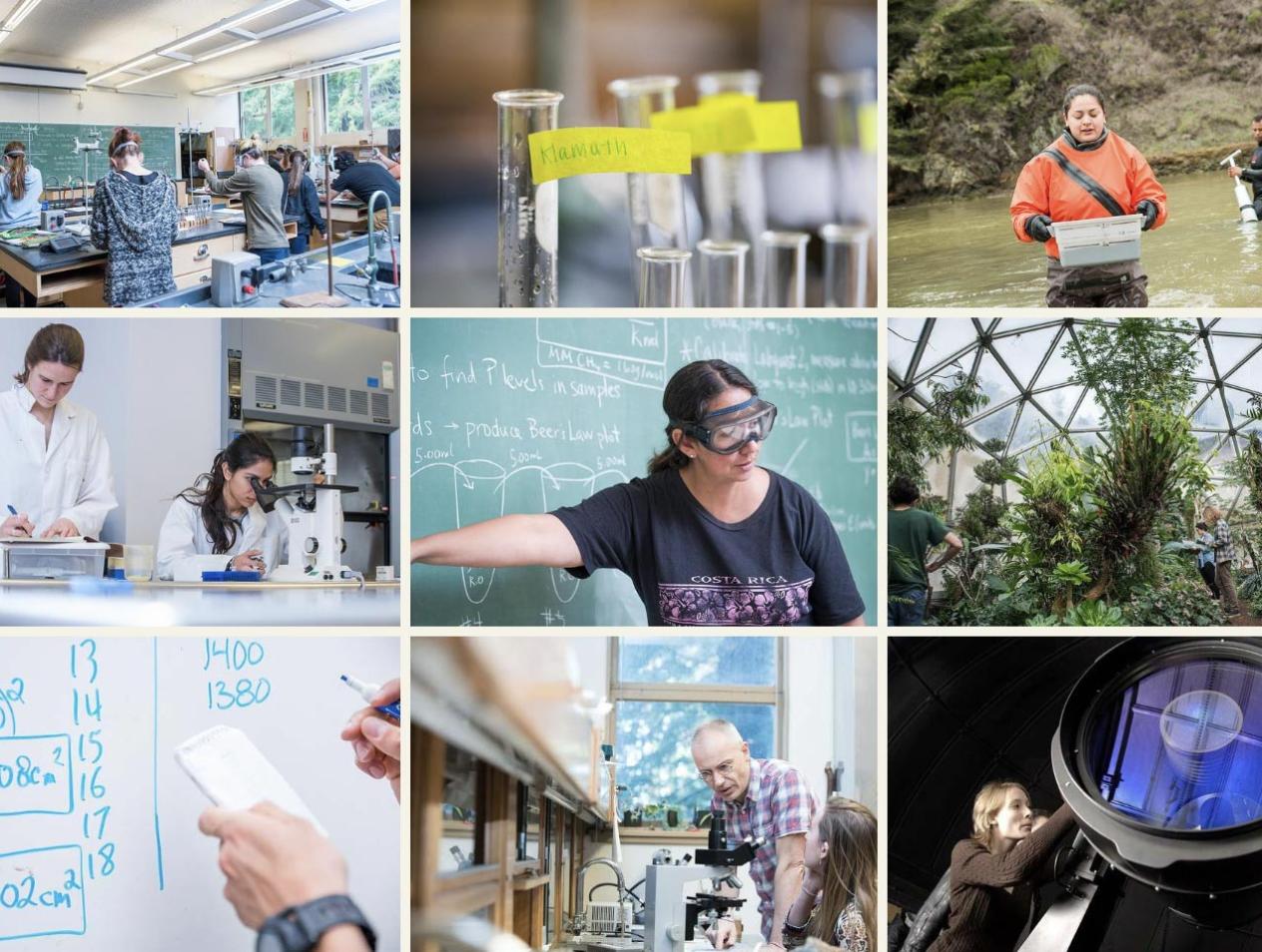Breadcrumb
Achievements
Find out what our students, faculty, and staff are being recognized for.
Justin Luong and Kerry Byrne
Forestry, Fire & Rangeland Management
Drs Justin Luong and Kerry Byrne received a $1.4 million UC Climate Action Grant for several projects supporting climate resiliency in California grasslands and rangelands. Grasslands serve as the foundation for California’s ranching economy, and support ecosystem services like carbon and water storage, flood mitigation, and ecotourism. In light of climate change, innovating ecological restoration that focuses on climate resilience is imperative. Luong and collaborators (CSU-Chico, CalPoly-SLO and PointBlue) will work with land managers across California to establish a Grassland Restoration Action, Science and Stewardship (GRASS) network for coordination and resource sharing, and developing climate-resilient grassland restoration protocols.
William Wood
Chemistry
Emeritus Chemistry Professor William Wood recently published an article in the Austrian Academy of Sciences journal Biosystematics and Ecology on the oyster-like odor of the plant, Mertensia maritima. This plant has a circumboreal oceanic distribution where it grows just above the high-tide mark, most often on exposed maritime shingle bars. Because of the smell of crushed plant leaves, it is called the oyster plant in Britain and Ireland, and oyster leaf in North America. Wood collected this plant in Homer, Alaska and is the first person to identify the chemical that gives this plant its common names.
Frank Fogarty
Wildlife
Dr. Frank Fogarty received funding to study how retained patches of trees in timber harvests effect bird communities in managed forests of the Pacific Northwest. Regulations in Oregon and Washington prescribe a minimum number of standing trees that must be retained by timber harvest operations, in part to enhance the biodiversity value of harvested lands. Dr. Fogarty will work with a graduate student to experimentally compare a variety of spatial retention arrangements, with the goal of demonstrating which retention strategies maximize avian diversity post-harvest. Funding comes from the National Council for Air and Stream Improvement.
Margaret Lang
School of Engineering
Dr. Margaret Lang received funding from the National Park Service to assess the condition of culverts (tunnel structures under roadways that provide cross drainage) throughout Redwood National Park. Many of the park’s culverts have not been properly assessed in over 40 years, and may be acting as passage barriers to federally threatened coho and chinook salmon, and steelhead trout. The project will provide the park with site survey data and a culvert replacement priority list, contributing to the preservation and enhancement of the park’s natural and cultural resources. Cal Poly Humboldt students will assist in conducting the assessments.
Steve Martin
Environmental Science & Management
The U.S. Secretary of the Interior has appointed Prof. Steve Martin to the Bureau of Land Management's Resource Advisory Council for Northern California. The Council provides advice to the federal agency regarding the management of public land resources.
Brian Tissot, Sean Craig
Biological Sciences
Drs. Brian Tissot and Sean Craig received funding to continue ongoing monitoring research in Marine Protected Areas (MPAs) along the California coastline. MPAs are regions designated and managed for the long-term conservation of marine resources, ecosystems services, or cultural heritage. Specifically, he and his team are looking at underwater kelp forests, collecting ecological and environmental data that will inform the evaluation and adaptive management of California’s network of MPAs. The project includes collaborators from UC Santa Cruz, UC Santa Barbara, and Occidental College. Funding comes as a subaward from UC Santa Cruz, with the primary funder being California Sea Grant.
Kerry Byrne
Environmental Science & Management
Dr. Kerry Byrne (Associate Professor, Environmental Science and Management) was awarded a sabbatical research grant from Western SARE (Sustainable Agriculture, Research, and Education) to work with collaborator Dr. Kelly Hopping at Boise State University on a project entitled "Seeds underhoof: can the soil seed bank facilitate restoration of sheep-grazed, cheatgrass-invaded rangelands?" Details of the award can be found here: https://projects.sare.org/sare_project/sw23-944/
Lucy Kerhoulas, Rosemary Sherriff, Erik Jules
Forestry, Fire & Rangeland Management
Lucy Kerhoulas (Forestry), Rosemary Sherriff (Geography), Erik Jules (Biology) are co-leading a new project to map the vegetation of the Klamath ecoregion along with undergraduate and graduate students, and collaborators from the California Native Plant Society and Michael Kauffmann (alum; Backcountry Press). The project involves sampling ~ 1600 locations across the 3-year project.
Justin Luong
Forestry, Fire & Rangeland Management
Dr. Justin Luong received a $520,000 grant to study how managed cattle grazing can provide benefits for wetland plant and animal communities at the Willits Bypass in Mendocino County. Managed grazing is a powerful tool for land management and has the potential to bolster biodiversity and carbon storage. Dr. Luong will work with local land agencies to assess how grazing exclusion affects special status plant species, overall plant communities, biodiversity, and soil carbon storage through traditional field study methods and aerial imagery. Collaborators include Drs. Sharon Kahara and Buddhika Madurapperuma. Funding comes from the California Bountiful Foundation.
Robert W. Zoellner, Tara S. Caso
Chemistry
Professor Emeritus Robert W. Zoellner and his former student, Tara S. Caso, have published their third peer-reviewed article, together, entitled "The DFT computational investigation of the β-sila-α-amino acids and their β-permethylsila-analogs: Silicon-containing amino acids as a viable foundation for silicon-based life”: T. S. Caso, R. W. Zoellner, Journal of Undergraduate Chemistry Research 2023, 22, 47–61.






